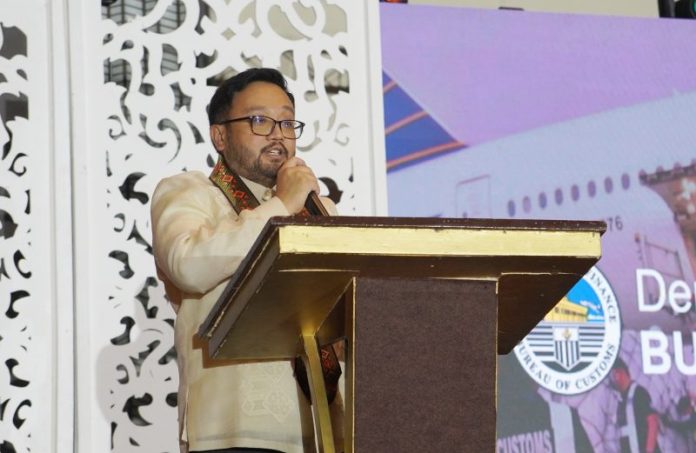
-
The Bureau of Customs is actively pursuing multiple projects to digitize processes and enhance trade through technology
-
It has so far digitized 96.39% — or 160 out of 166 — of its processes
-
Digitalization projects include the Bureau’s e-Pay Portal, a-Auction System, Automated Export Declaration System, and National Customs Intelligence System
-
BOC will use blockchain to verify export certificates with Chinese customs
-
The agency aims to digitize pre-border verification of agricultural imports and cross-border electronic invoicing to enhance efficiency and combat smuggling
The Bureau of Customs (BOC) is actively pursuing multiple projects to digitize processes and enhance trade through technology and has so far digitized 96.39% or 160 out of its 166 processes, according to BOC deputy commissioner Vener Baquiran in a presentation at the 31st National Convention of the Chamber of Customs Brokers on November 30.
Among ongoing digitalization projects is the BOC e-Pay Portal System for the settlement of miscellaneous fees. For implementation in December 2023, the web portal will operate 24/7 and integrate with multiple online payment channels.
Another project, the e-Auction System is also a web portal focused on enhancing transparency in the auction of seized goods. The draft customs memorandum order (CMO) for the system is under review.
Additionally, the integration of the Automated Export Declaration System (AEDS) with the Automated Export Documentation System (AEDoS) and the National Customs Intelligence System (NCIS) is in the pipeline.
READ: BOC AEDS-AEDoS integration up for public consult
The AEDS, part of the BOC’s Electronic-to-Mobile System, facilitates the receipt and processing of export declarations by exporters. Public consultation on its integration with AEDoS occurred in August. Implementation is eyed in the fourth quarter of the year.
The draft CMO for NCIS, a web portal collecting intelligence data for informed decision-making, analysis, and policy formulation, is awaiting review.
“Surely, there is more work to be done. But embracing these technological advancements will open doors for improved connectivity. The challenge lies in accelerating the use of digital technology within a short period to attain competitiveness in international trade but the opportunities presented by this shift are vast and promising,” Baquiran said.
In addition to these projects, BOC recently introduced the E-Travel Customs System, integrating customs forms into the Bureau of Immigration’s eTravel System, and the Overstaying Cargo Tracking System, monitoring overstaying containers.
Beyond digitalization, BOC is committed to streamlining trade facilitation with Baquiran revealing efforts to conduct a national trade release study, as recommended by the World Customs Organization, to measure cargo release times and identify areas for improvement.
BOC has also signed a memorandum of understanding with MYEG Ventures, Inc. and Cargo Data Exchange Center for the use of blockchain technology through the Zetrix platform. This application aims to facilitate the verification of certificates of origin for exports between the Philippines and China.
Additionally, plans are underway for a digital system for pre-border technical verification of agricultural imports and cross-border electronic invoicing to increase operational efficiency and combat smuggling. A draft administrative order (AO) for this system has been submitted to the Office of the President.
Baquiran, in an interview with PortCalls at the sidelines of the event, said that while importers will cover the cost of the third-party surveyor for the pre-shipment inspection (PSI) of agricultural products at the origin, the system is expected to be cost-effective, expediting shipments’ release in the Philippines.
PSI involves private companies checking details like price, quantity, and quality for goods ordered from overseas. Currently required for bulk and breakbulk shipments under AO 243-A, there have been past attempts to apply PSI to containerized shipments but these have faced opposition due to cost concerns.
Last year, BOC suggested an optional PSI for containerized agricultural shipments to combat agricultural smuggling. – Roumina Pablo




